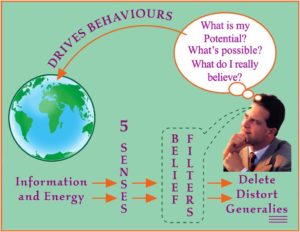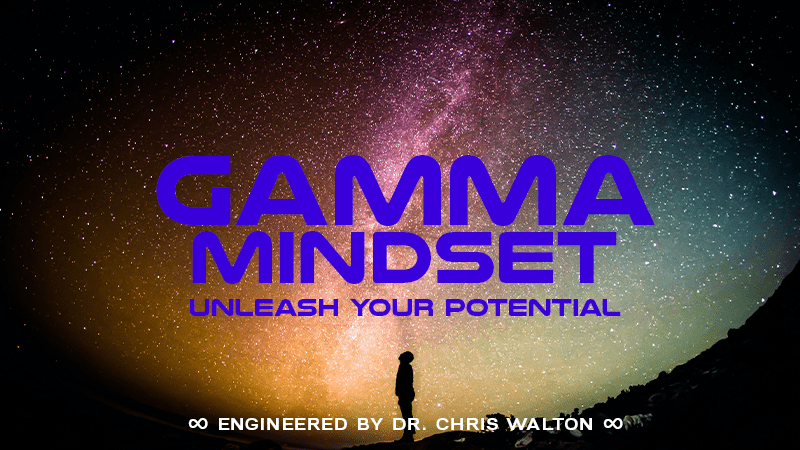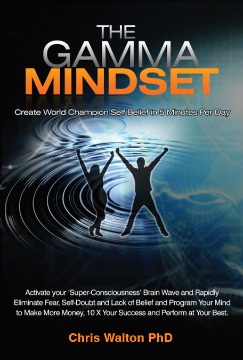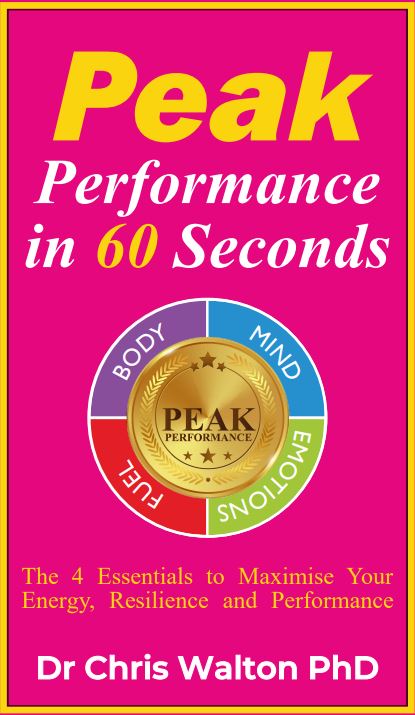“Our perceptions of what we see, hear, feel, and so on depends to a great extent on our expectation.
In a certain sense, what we perceive is what we expect.”
Stephen LaBerge, Ph.D., Exploring the World of Lucid Dreaming
As we go through our day-to-day activities, our senses are bombarded with billions of “bits” of information every minute.
Our brain and nervous system are designed to filter huge amounts of this information from our conscious awareness so that we are not overloaded and can order the world, making sense of it.
One way we order the inflow of information is through a filtering process, where we make deletions, form generalisations, and sometimes create distortions.
Most of the information that bypasses our conscious mind is either lost to us or is stored in our subconscious mind.
It’s for this reason that many scientists, especially psychologists and consciousness researchers, say that our subconscious mind is our primary mind and that most of who we are and how we act is influenced by the content of it.
How does this filtering process work?
It’s a complex process that I will talk about in greater depth again later, but for now we can keep the discussion relatively direct and simple.
Think of a time when you were looking for a book on a crowded bookshelf.
You couldn’t find the title you were looking for.
You checked again, and then again—but still no book.
So you walked away or checked another bookcase elsewhere. Later you came back to the first bookcase, and lo and behold the book you were looking for popped out at you. It was there all along.
You just couldn’t see it.
Your mind deleted it from your awareness.
There are many reasons why this might have happened, from you being distracted thinking about something else to just being lazy and giving the bookshelf a cursory glance a couple of times.
This kind of filtering happens all the time. I paid the price for it recently myself. I had new business cards printed with a new logo design that I was pleased with.
I was so focused on the logo that I did not see that two of my phone numbers were scrambled. In fact, although I admired the new cards many times over the next few months, I never detected the incorrect phone numbers until I ran into someone I had given a card to and she told me she had been trying to call me but the numbers on my card didn’t work. Arrgghhh!
Our daily lives are subject to the same kind of filtering processes. We screen our experiences according to our beliefs, focusing on what our beliefs tell us is important and ignoring or glossing over the rest.
It’s a stereotype, even a cliché, that women are bad drivers. Yet if you believed that was true, you would see many more erratic woman drivers than I would.
According to your expectation of seeing them, you would see more mostly because you would be less tolerant of how women drive and, more important, because you would have a tendency to screen out seeing all of the skilled women drivers.
We tend to filter the world for information that supports our belief system; conversely, we filter out that which contradicts it.
This truth answers the question that heads this chapter: where is your world? It’s in our minds, in our subconscious and conscious belief systems.
The world shows itself to us largely as we perceive it to be, so your world is a very different world from mine, according to our belief filtering systems.
When I explain more about how our minds work, you will discover just how much information we delete from our conscious awareness. It truly boggles the mind!
Our beliefs act as our filters of perception. We perceive the information in our world through our five physical senses and make meaning of it based on what we believe to be true. Thus, in a fundamental way, the world really is as we believe it to be.
…
Our beliefs and expectations can even edit our memories and revise reality.
Elizabeth Loftus, professor of psychology at the University of California–Irvine, has conducted hundreds of experiments that have clearly shown that this revision process is real and how it works.
In one study, adults who had visited the American theme park Disneyland, where actors are dressed as popular cartoon characters and wander the park interacting with visitors, were asked if they had talked to or otherwise interacted with Bugs Bunny while there.
More than one-third of them said they had.
Several reported that they had shaken his hand or had even hugged him.
Others remembered touching his tail or ear.
Some even said they heard him say his famous line, “What’s up, Doc?”
The problem is Bugs Bunny is a Warner Brothers cartoon character, not a Walt Disney character.
There is no Bugs Bunny character anywhere in the Disneyland theme park.
But because there are other popular cartoon characters there, and because Bugs Bunny is among the most well-known and well-loved of cartoon characters, these adults expected he would be there, and thus many of them remembered seeing him, talking to him, and even touching him.
Their belief distorted the facts. Our beliefs have many biases which can easily distort reality.
Expectation is a major one, but so is the influence of authority.
In his book Influence social psychologist Dr Robert Ciadini showed that we tend to believe what is told to us by people who we deem as respected and trustworthy authority figures, such as physicians, scientists or people who are experts in their fields.
We take their word at face value and tend not to check the facts they give us.
Andrew Newberg, MD, of the University of Pennsylvania, identified 27 ways in which we distort our reality to fit our biases. I have highlighted some of the primary ways below:
- Family Bias—we tend to believe information given to us by family and close friends without too much question or checking of the facts. We have relied on these people, and we like and trust them, so we tend to believe them.
- Attraction Bias—we tend to believe people whom we find attractive and who make more eye contact with us than we do those we deem unattractive or who tend not to look us in the eye; the reasons have to do with the positive emotions that arise in us when we view things or people we find aesthetically pleasing and when we receive another’s attention.
- Self-Serving Bias—we tend to maintain those personal beliefs that benefit our own goals or interests.
- Group Consensus Bias—we tend to put more value on those beliefs that are shared by others; the more others agree with us, the truer our beliefs seem to be, even if they are not factually true. Conversely, the more people who disagree with our beliefs, the more we will begin to doubt these beliefs, even if they are true.
- Projection Bias—we assume that people in the same group (religious, socio-economic, etc.) as us have the same beliefs and view the world in a similar way. It’s the “everybody thinks like us” mindset. This bias is particularly prevalent in organisations, where the senior executives set the agenda and assume that the workforce will believe in it and follow it through. This is often not the case, as the workforce may hold conflicting beliefs. If they do, this leads to misunderstandings, and a lack of productivity, creativity and innovation.
- Persuasion Bias—we tend to believe people more if they explain their view in a more emotional and concrete (visually stimulating, metaphoric, graphic) way. This bias can be positive or negative; consider the differing belief outcome of the persuasiveness of such powerful speakers as Martin Luther King, Jr., and Adolph Hitler.
- Uncertainty Bias—generally, we do not deal well with feelings of uncertainty or ambiguity, so we prefer to hang on to some beliefs, quickly form an opinion or make up our minds, or conversely to disbelieve facts about which we are unsure, rather than to remain uncertain for very long. We tend to do this even if it is to our advantage to not come to a conclusion or to wait to make a decision or form an opinion until we have more information.
- Publication Bias—we tend to believe information that is published or reported in the media, such as on television, or by some other seemingly reliable source without asking too many questions. As an example, in 1976 the BBC broadcast that the planet Pluto would have a bizarre gravitational effect on Jupiter as it passed that planet, and the effect could be felt even on Earth. They reported that if you jumped at just the right time, you would experience a wonderful floating effect. Hundreds of people called in to say they had experienced it! Of course, no such effect was possible.
If you think you are immune to these kinds of belief biases and filters, think again. We all operate every day according to one or more of them.
That’s because we can’t not have biases and filters. In some respects, we need them to survive, to not be inundated and overloaded with information, and to make sense of the information that does come our way.
We don’t have the time or the expertise to check every fact, consider every point of view, or weigh the ramifications of every option. We need to take action in order to live our lives; filtering information is one way we do that.
However, we can all benefit from exploring which of our belief filters help or hinder our innate abilities, goals, dreams and desires.
To live the life we really want, we have to ask which of our filters is beneficial to us or not, empowering to us or not, life-enhancing or not.
We have not only personal filters, but mass ones as well. These are formed from our cultural, religious, economic, political and other influences.
As a quick check of your more generalised belief filters, complete each of the following sentences with the first words that come to mind. Do not edit yourself!
- Most Politicians are. . . . .
- Most Americans are. . . . . .
- Most Muslims are. . . . . .
- Most Italians are…
- Most French are…
- Most Catholics are. . . . .
- Most Doctors are. . . . . .
- Most Lawyers are. . . . . .
If you are like most people, your unedited, spontaneous statements were probably generalised statements, perhaps bordering on stereotypes. That’s because we are very good at making huge generalisations based on our beliefs.
We tend to generalise about what is true or false, right or wrong, possible or not possible and so on based on our past experiences, on what we have been taught, and on news and information to which we have been exposed repeatedly.
These mass generalisations often become prejudices.
The truth is that we don’t often stop to question our assumptions and prejudices, never mind our core constellation of beliefs.
Yet doing so can be one of the most liberating activities of our lives, because we inevitably discover that we didn’t even decide according to our own logic or intellect, or even our own free will, to hold most of our beliefs.
We were programmed to hold them!
The way we form beliefs involves a host of influences that are working on us from the moment of our births.
As children we depend on others to teach us about the way the world is. We learn a specific language, which in and of itself structures what we are even capable of conceiving and believing.
For example, some languages have no words with which to talk about the future, focusing only on the past or the present. Imagine how different such a world is from your own!
You also may have been raised with a particular religion or family politics, or with a specific family attitude about the value of science, art, logic, and creativity.
You were raised to expect a certain type of emotional expressiveness, perhaps in a family that did not hug or touch much, which coloured the way you view relationships, intimacy, and so on.
The fact is that we are exposed to myriad ways, both blatant and subtle, to filter the world.
You were taught what to include and ignore, what to value and devalue, and on and on.
For most of us, our early years are ones in which we didn’t think for ourselves at all or very much; we simply accepted what we are told and formed beliefs based on what those around us believed.
That’s all well and good. Children after all have to learn some way and from someone. But as adults, we find that running the same belief programme we had as children no longer serves us well.
So, it pays to become conscious of all the ways we form our beliefs in the first place.
The majority of our beliefs came from:
- Parents/Family
- Social/economic class
- Geographical location
- Culture
- Religion
- History
- Science
- Schools
- Friends/Colleagues/Peers
- Political system
- The Media ! ! !
The truth is that, as Albert Einstein once said,
“Common sense is the collection of prejudices acquired by the age of eighteen”.
And that is the problem: we take all those beliefs—many of which are prejudices—into our adulthood unquestioned and uninvestigated.
We inherit so many of our beliefs at such a deeply subconscious level that they still control our choices and actions today, even when the choices and actions of yesterday are making our todays miserable!
I am suggesting that the way out of this dilemma, and the way to finally gain conscious control over your life to remake it to meet your loftiest goals, is to increase your awareness of what your core beliefs and then to transform those that are not serving you into ones that are.
It is possible to do so, without years of “talk therapy” or involved self-analysis.
Logic holds no sway over the subconscious, which is why all our good intentions and New Year’s resolutions so often fail.
The door to the unconscious is through the body, as I will soon show you.
There are quick and effective ways to create an internal life that dynamically supports the way you want your external life to look.
You can begin the process by reflecting on the following questions:
- What are the main beliefs that you learned and adopted from your parents, extended family and overall upbringing about the way the world works and how you fit into the world?
- Which of the beliefs you identified in the question above may no longer be true for you but are still controlling aspects of your life?
- Which of the beliefs identified in the first question are still true for you? Of those beliefs that are still true for you, which are helping you live up to your personal potential and which are hindering you?
- How might you benefit from changing and updating the limiting beliefs you identified in the previous questions?
Almost all of our beliefs are ones we hold from the past, so it is no surprise that many of them are out of date and need revising.
It is important to keep a perspective here.
Note the words I used: beliefs are out of date.
They are not necessarily good or bad. They are just old! They no longer work in your present reality.
The change is not to replace a bad belief with a good one.
It’s to replace an outdated one with an updated one.
You have changed, the world has changed, your circumstances in the world have changed from when you were a child.
What you wanted as a child may no longer be what you choose as an adult.
If your life is not working as you would like it to, it’s no surprise if you are operating on a constellation of outdated beliefs.
Your beliefs filter your world, and thus they control your potential.
So, isn’t it time you aligned your beliefs about the world with the world you actually live in now?
Doing so is the key to changing your life, to making conscious choices that foster all the abundance, health, happiness, love and creativity that you desire now and in the future. In a very real sense, as paradoxical as it sounds, you are what you believe you are capable of being!
Physicist and author Dr. Jeremy Hayward sums things nicely when he tells us;
“To a very large extent men and women are a product of how they define themselves.
As a result of a combination of innate ideas and the intimate influence of the culture and the environment we grow up in, we come to have beliefs about the nature of being human.
These beliefs penetrate to a very deep level of our psychosomatic systems, our minds and brains, our nervous systems, our endocrine systems, and even our blood and sinews.
We act, speak, and think according to these deeply held beliefs and beliefs systems”
I can pretty much guarantee, based on my experience as a Doctor of Integrative Medicine and Performance Psychologist working with thousands of people over the last 30 + years, that almost all of us have out-of-date self- limiting beliefs that are holding us back from realising the fullness of our personal potential and abilities in all aspects of your life: self-esteem, relationships, finances, prosperity, work and career, health and fitness, and self-healing abilities.
And I can tell you that changing these outdated beliefs is not difficult… More on this later.
If you are interested in reprogramming your core beliefs then this is a great place to start:




